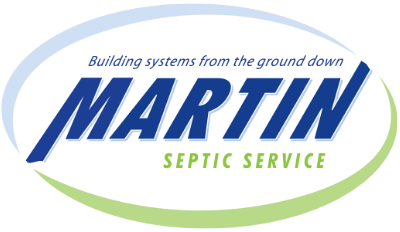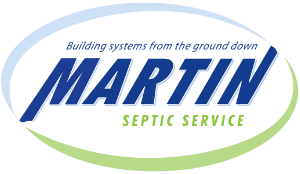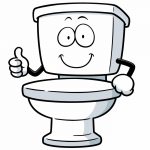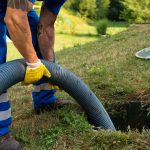What is a Septic system anyway?
A septic system is one of two main ways that houses dispose and regulate the treatment of wastewater. If you live in an urban area you may be connected to a sewer system. This system magically whisks the wastewater away when you flush the toilet, never to be seen again. The second method consists of a septic system. This onsite system collects and manages wastewater to protect streams, ponds and ground water sources. A septic system in its basic form has a few main components.
First there is holding talk that is sealed and usually made from concrete, or a composite material. Where you live, soil composition and such may have an effect on the type of system used in your area. This tank allows solids to settle to the bottom and oils and grease to float on top creating a scum layer. In between is wastewater which is allowed to drain from the tank into an engineered drainfield. The drainfield then filters the water and natural biological breakdown turns wastewater harmless. In turn this is absorbed by the ground and allowed to reenter the natural water cycle on earth.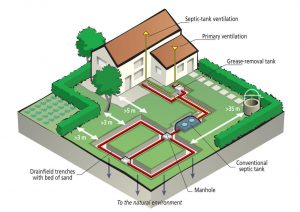
How do I know if I have one?
Next, there are several ways to check. If your house has a well, has no meter on the house or you get a water bill with a $0.00 amount in the sewer cost section, you probably have a septic system. In fact there are more than 20 million septic systems in the United States alone, which figures to about 1 in 5 houses.
What do I need to know?
If you have a septic system, there are some basic items you must keep in mind and some regular maintenance. Here are a few items that you need to consider. Notice some of these items link to other articles we have written with more details on each.
-
Maintain Your Septic System – This will save you money in the long run. Having your system checked out by Martin Septic every 3-4 years is the most cost effective way of making sure your system functions for a long time!
-
You Can’t Flush That! – There are definitely things that should never be flushed down the toilet. They fill your holding tank up faster than expected, clog drains, damage equipment and even endanger your family.
-
Wasting Water Is Bad – First off is costs you a whole lot of extra money, is bad for the environment and can cause other damage to your home. This article has some fantastic tips to help you save.
If you ever have any questions about your septic, a house your buying or other related questions give us a call. Our decades of experience can help to keep you informed.
Updated 3/5/2022

